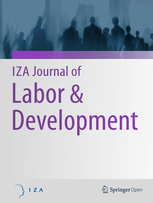 Minimum wages are a not just a hot policy issue in the United States and other highly developed nations. They are also a central aspect of the policy discourse in developing and transition economies, with diametrically opposite perspectives dominating the debate. Theory is ambiguous, and at its core this is an empirical question, not least because enforcement can vary across countries.
Minimum wages are a not just a hot policy issue in the United States and other highly developed nations. They are also a central aspect of the policy discourse in developing and transition economies, with diametrically opposite perspectives dominating the debate. Theory is ambiguous, and at its core this is an empirical question, not least because enforcement can vary across countries.
A collection of papers published in the IZA Journal of Labor & Development conduct detailed and country specific analyses of the consequences of minimum wage policies for China, Indonesia, Thailand, Russia, Honduras and South Africa. They provide the empirical foundations for a reasoned debate on this contentious policy question.
- View the Thematic Series (Guest Editors: Haroon Bhorat, Ravi Kanbur and Shi Li)